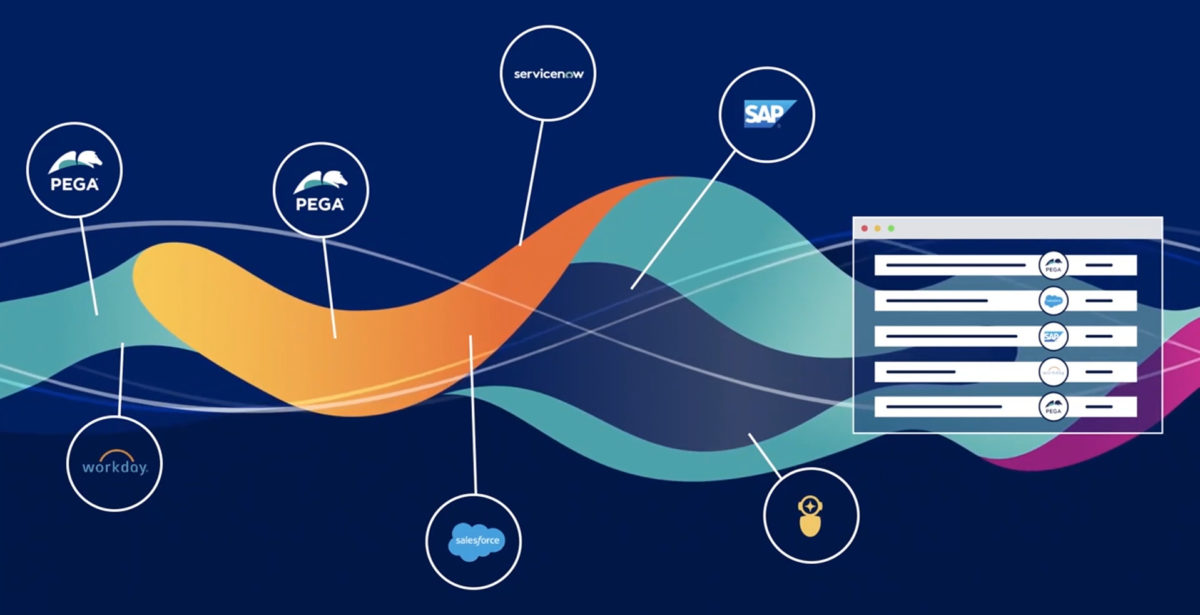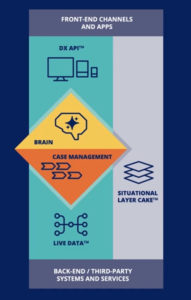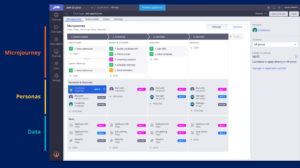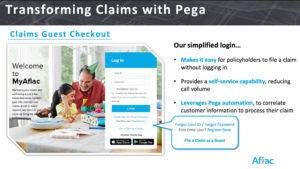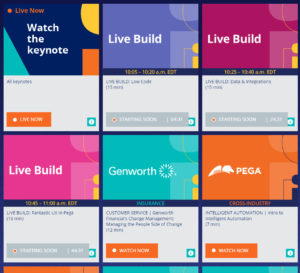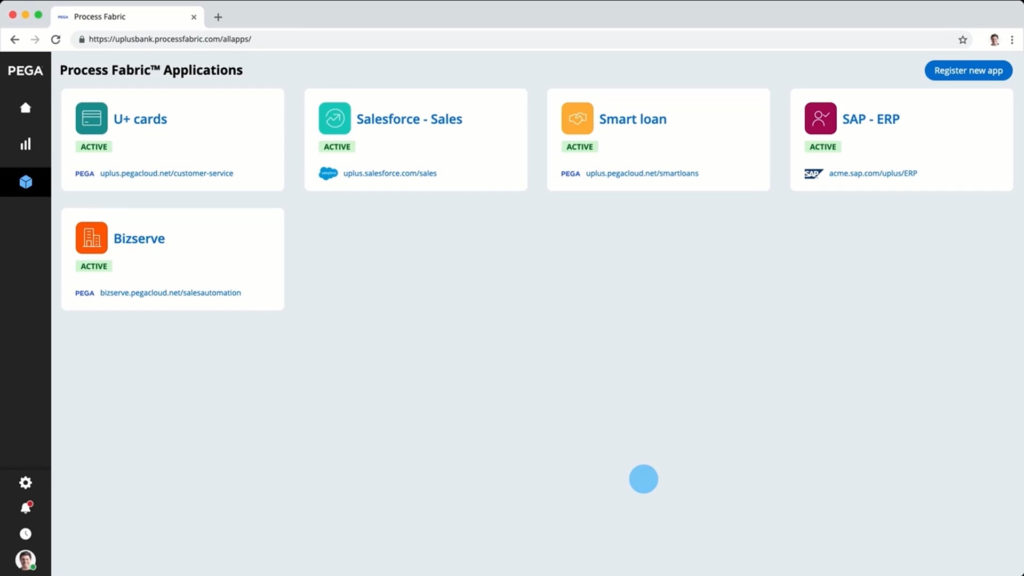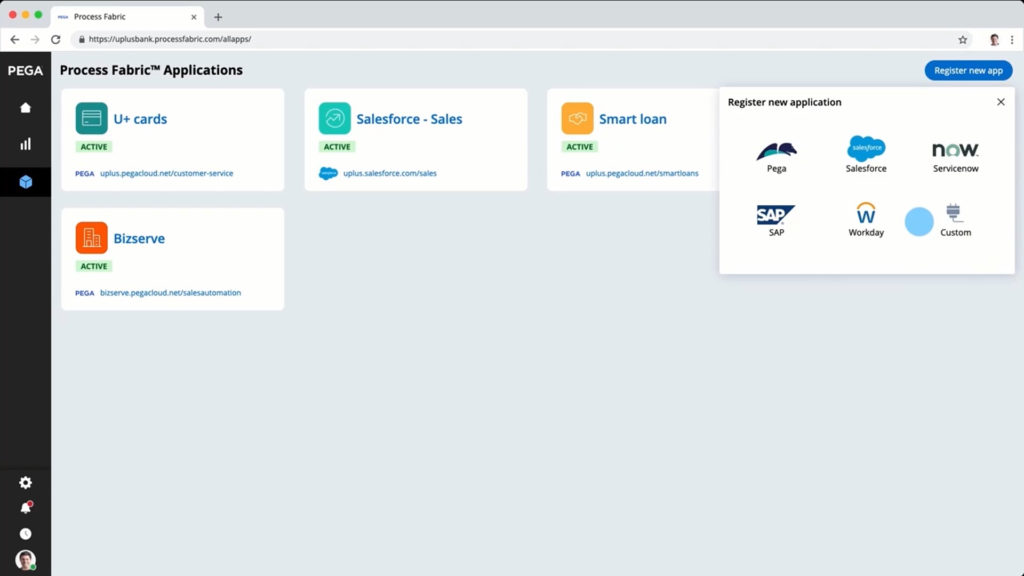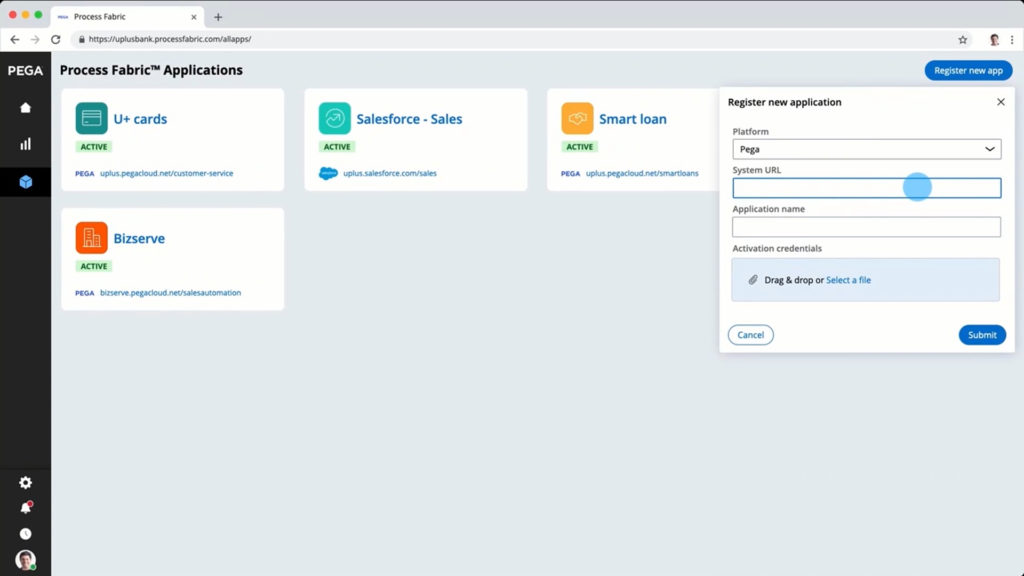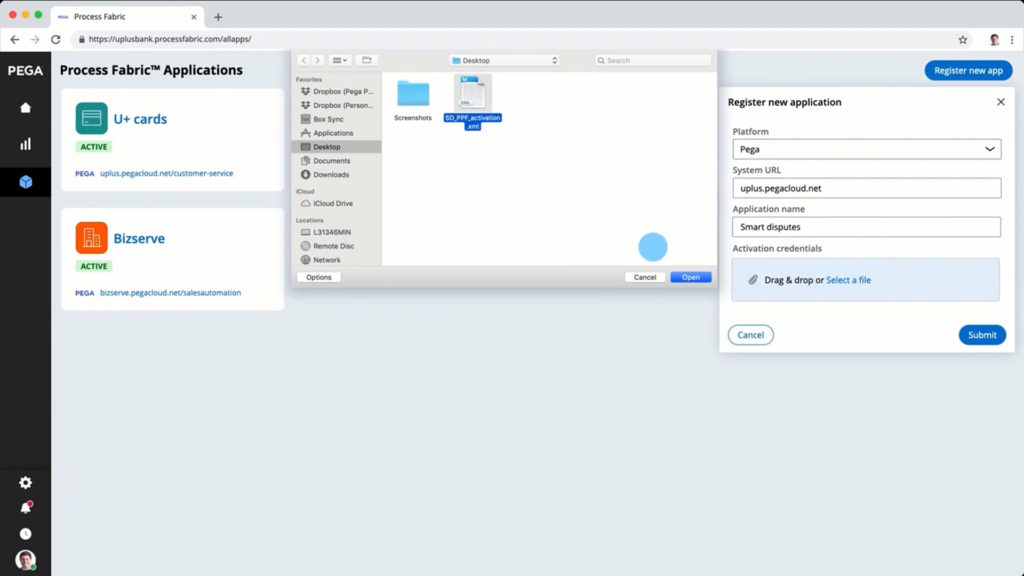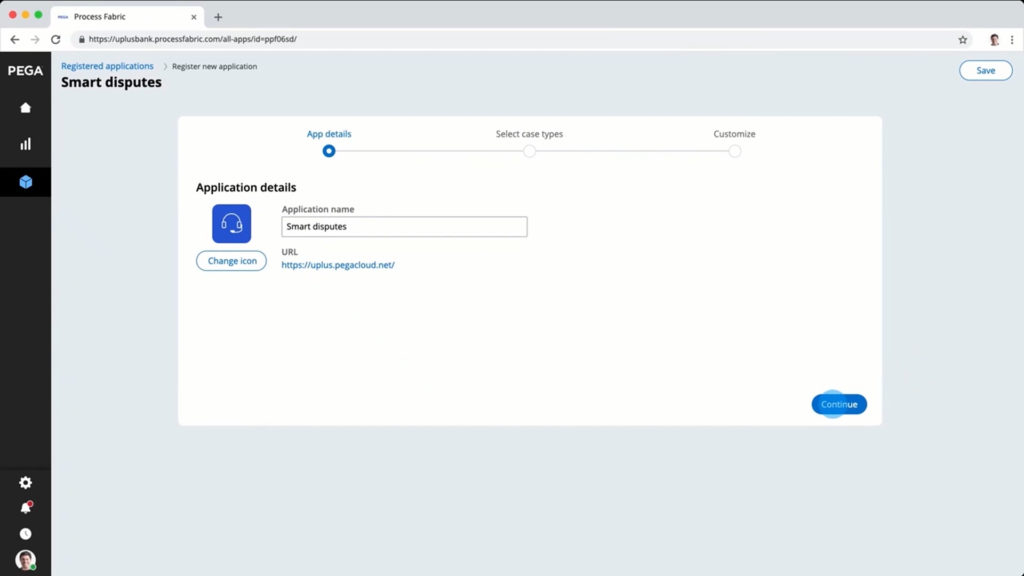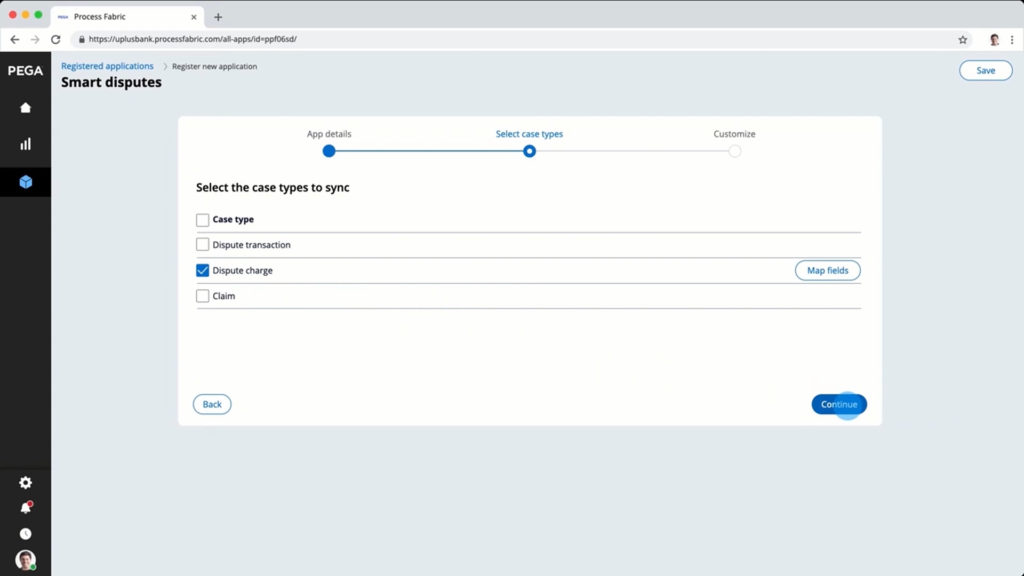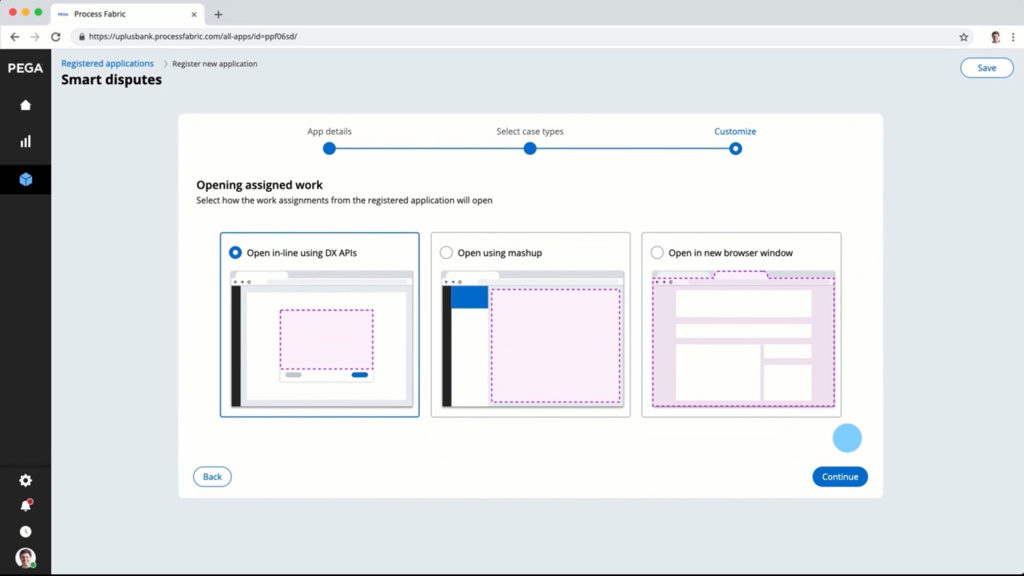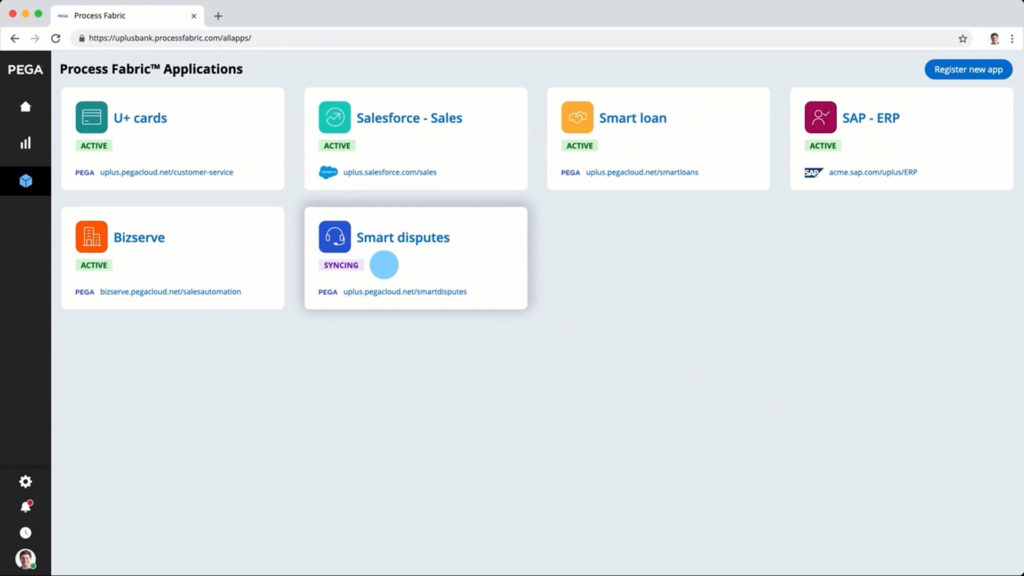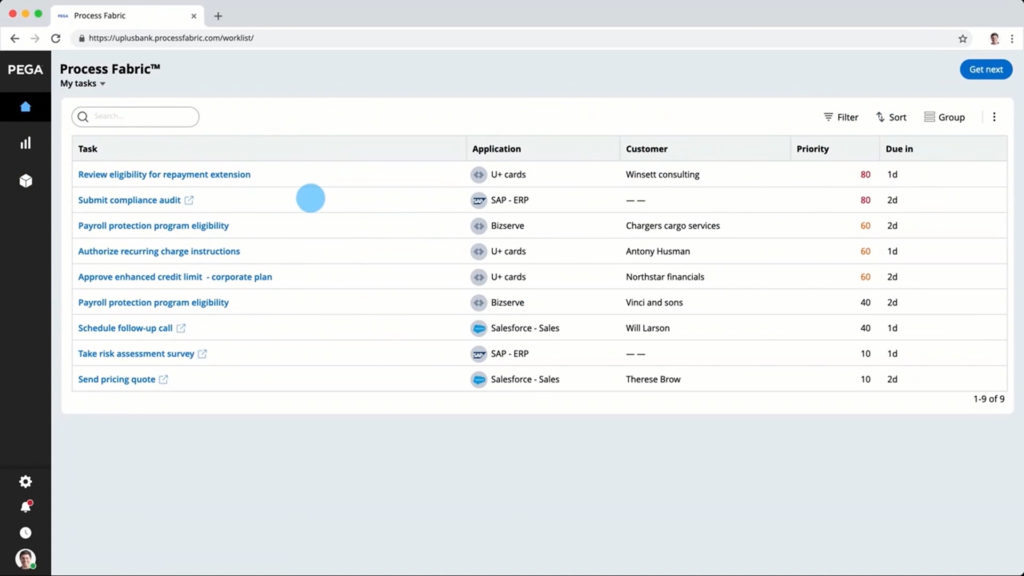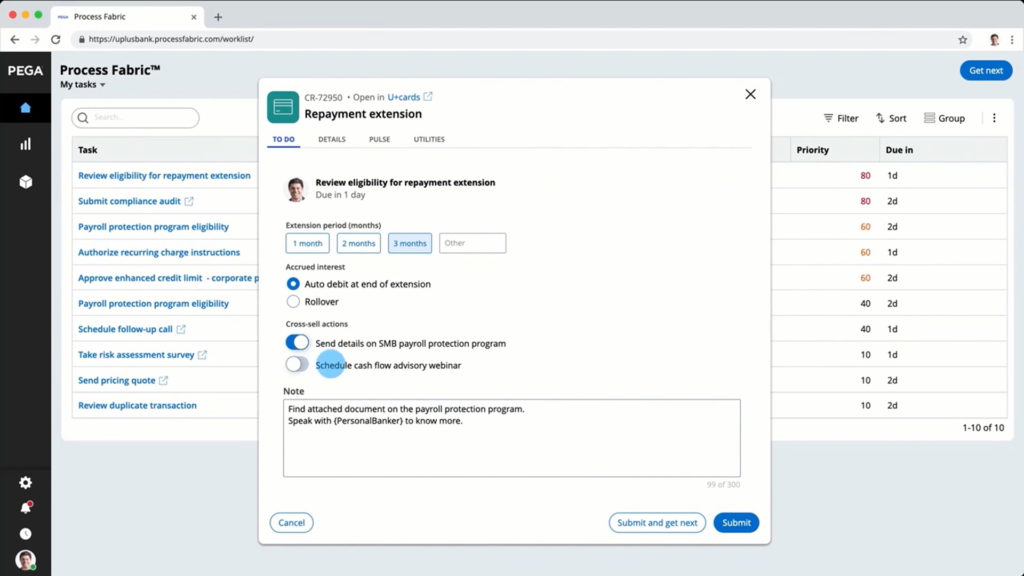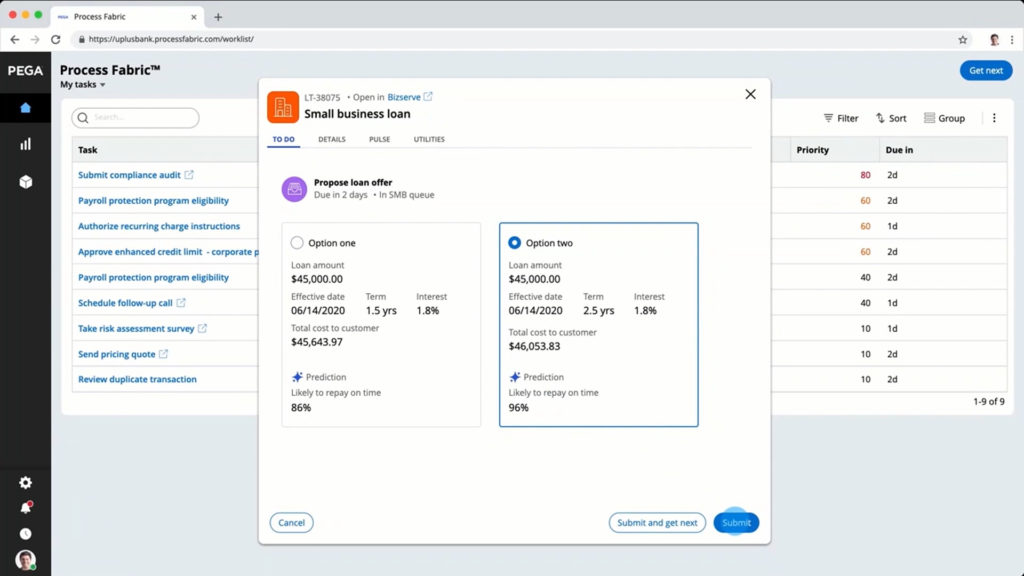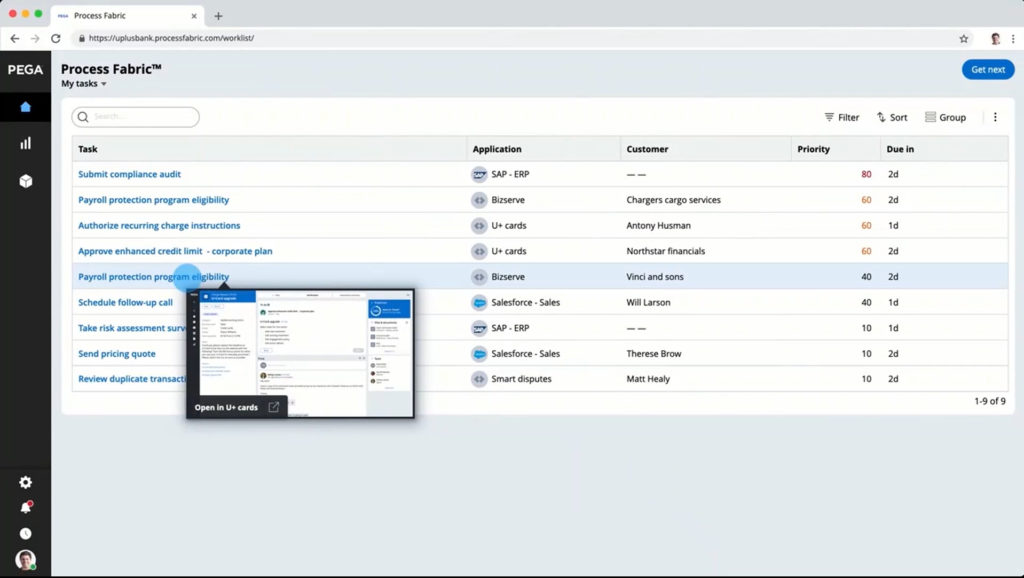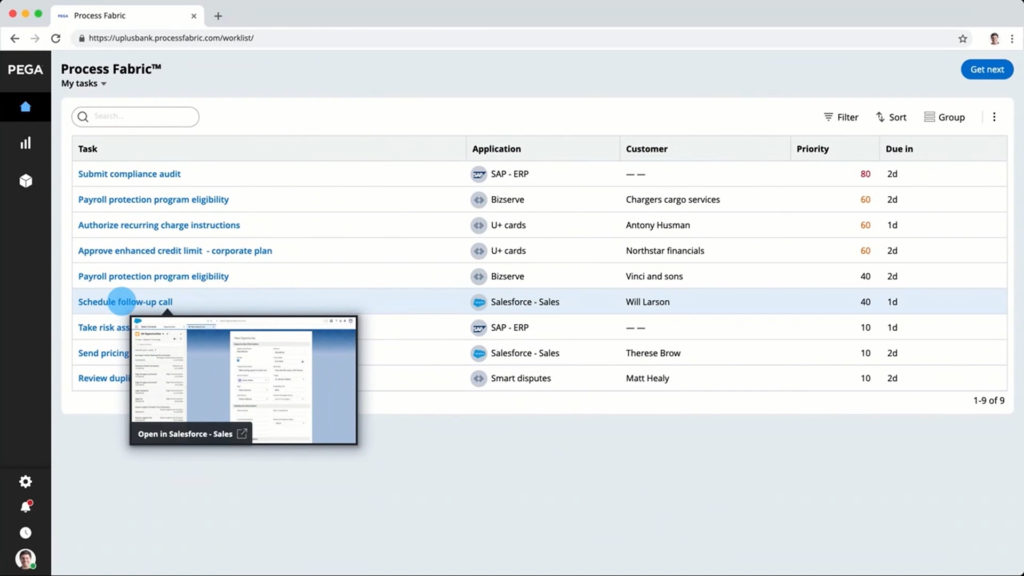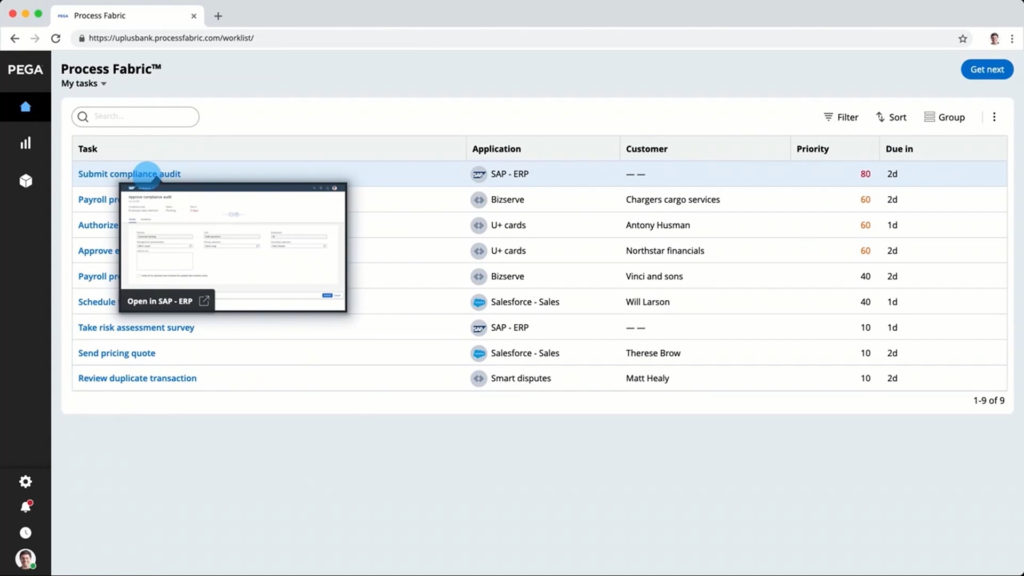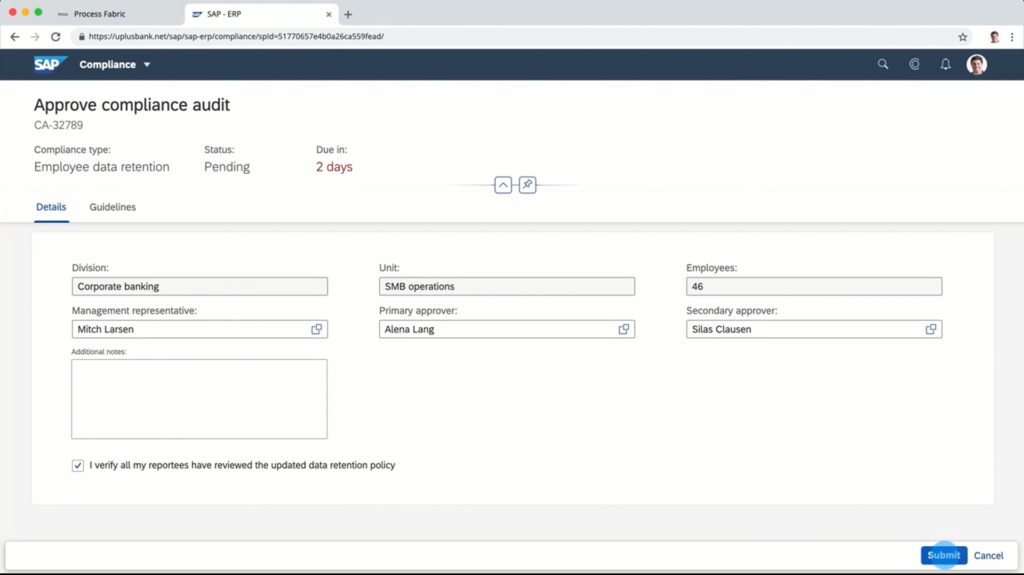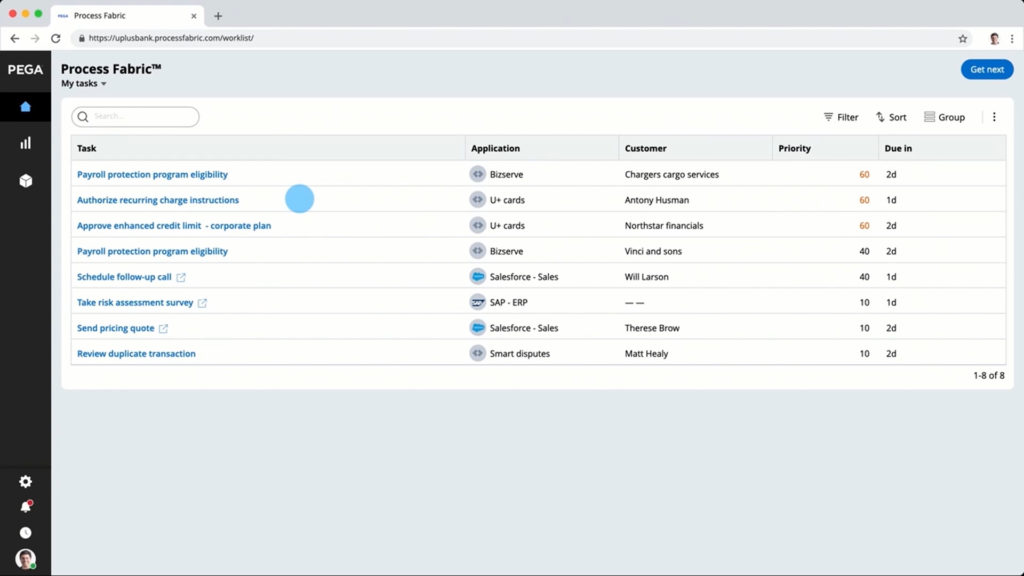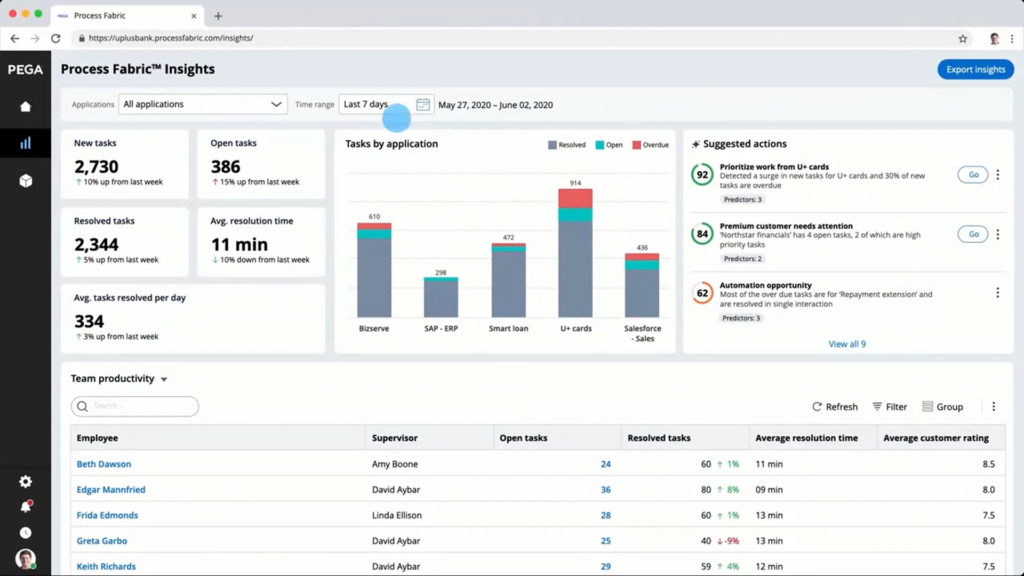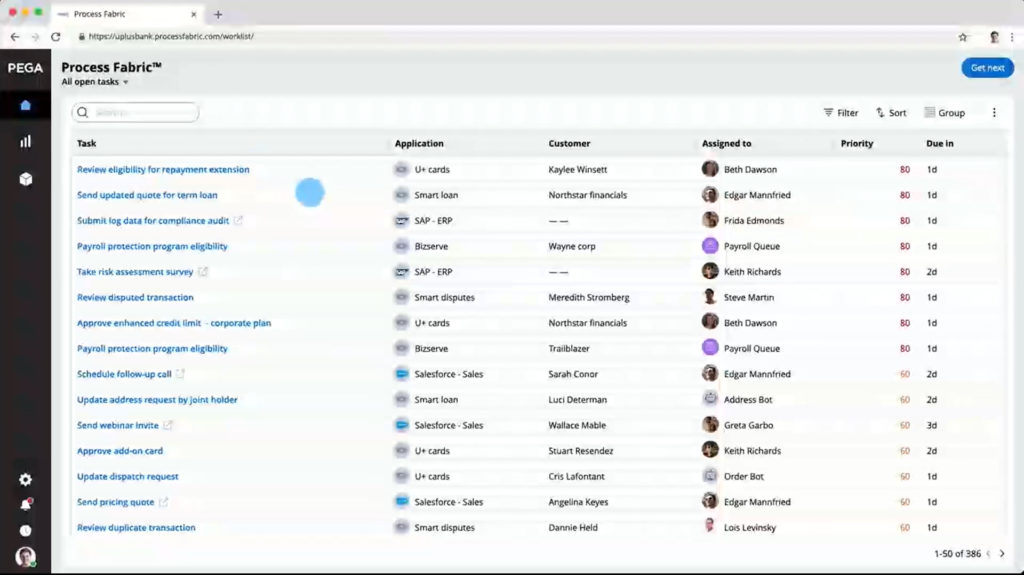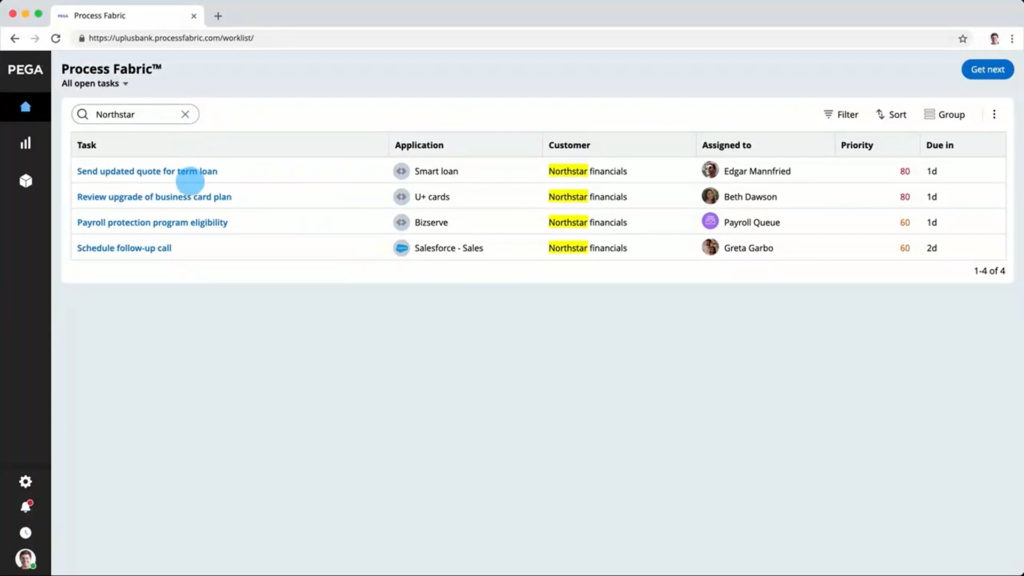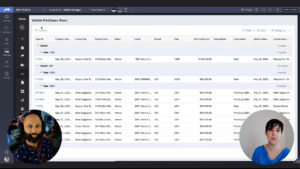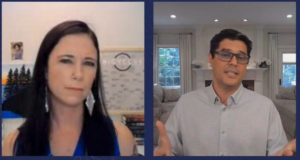PegaWorld, in shifting from an in-person to virtual event, dropped down to a short 2.5 hours. The keynotes and many of the breakouts appeared to be mostly pre-recorded, hosted live by CTO Don Schuerman who provided some welcome comic relief and moderated live Q&A with each of the speakers after their session.
The first session was a short keynote with CEO Alan Trefler. It’s been a while since I’ve had a briefing with Pega, and their message has shifted strongly to the combination of AI and case management as the core of their digital platform capabilities. Trefler also announced Pega Process Fabric that allows the integration of multiple systems not just from Pega, but other vendors.
Next up was SVP of Products Kerim Akgonul, discussing their low-code Pega Express approach and how it’s helping customers to stand up applications faster. We heard briefly from Anna Gleiss, Global IT Head of Master Data Management at Siemens, who talked about how they are leveraging Pega to ensure reusability and speed deployment across the 30 different applications that they’re running in the Pega Cloud. Akgonul continued with use cases for self-service — especially important with the explosion in customer service in some industries due to the pandemic — and some of their customers such as Aflac who are using Pega to further their self-service efforts.
There was a keynote by Rich Gilbert, Chief Digital and Information Officer at Aflac, on the reinvention that they have gone through. There’s a lot of disruption in the insurance industry now, and they’ve been addressing this by creating a service-based operating model to deliver digital services as a collaboration between business and IT. They’ve been using Pega to help them with their key business drivers of settling claims faster and providing excellent customer service with offerings such as “Claims Guest Checkout”, which lets someone initiate a claim through self-service without knowing their policy number or logging in, and a Claims Status Tracker available on their mobile app or website. They’ve created a new customer service experience using a combination of live chat and virtual assistants, the latter of which is resolving 86% of inquiries without moving to a live agent.
Akgonul also provided a bit more information on the Process Fabric, which acts as a universal task manager for individual workers, with a work management dashboard for managers. There was no live Q&A at this point, but it was delayed until a Tech Talk later in the agenda. In the interim was a one-hour block of breakouts that had one track of three live build sessions, plus a large number of short prerecorded sessions from Pega, partners and customers. I’m interested in more information on the Process Fabric, which I believe will be in the later Tech Talk, although I did grab some screenshots from Akgonul’s keynote:
The live build sessions seemed to be overloaded and there was a long delay getting into them, but once started, they were good-quality demos of building Pega applications. I came in part way through the first one on low-code using App Studio, and it was quite interactive, with a moderator dropping in occasionally with live questions, and eventually hurrying the presenter along to finish on time. I was only going to stay for a couple of minutes, but it was pretty engaging and I watched all of it. The next live demo was on data and integration, and built on the previous demo’s vehicle fleet manager use case to add data from a variety of back-end sources. The visuals were fun, too: the presenter’s demo was most of the screen, with a bubble at the bottom right containing a video of the speaker, then a bubble popping in at the bottom left with the moderator when he had a question or comment. Questions from the audience helped to drive the presentation, making it very interactive. The third live demo was on user experience, which had a few connectivity issues so I’m not sure we saw the entire demo as planned, but it showed the creation of the user interface for the vehicle manager app using the Cosmos system, moving a lot of logic out of the UI and into the case model.
The final session was the Tech Talk on product vision and roadmap with Kerim Akgonul, moderated by Stephanie Louis, Senior Director of Pega’s Community and Developer Programs. He discussed Process Fabric, Project Phoenix, Cosmos and other new product releases in addition to fielding questions from social media and Pega’s online community. This was very interactive and engaging, much more so than his earlier keynote which seemed a bit stiff and over-rehearsed. More of this format, please.
In general, I didn’t find the prerecorded sessions to be very compelling. Conference organizers may think that prerecording sessions reduces risk, but it also reduces spontaneity and energy from the presenters, which is a lot of what makes live presentations work so well. The live Q&A interspersed with the keynotes was okay, and the live demos in the middle breakout section as well as the live Tech Talk were really good. PegaWorld also benefited from Pega’s own online community, which provided a more comprehensive discussion platform than the broadcast platform chat or Q&A. If you missed today’s event, you should be able to find all of the content on demand on the PegaWorld site within the next day or two.

